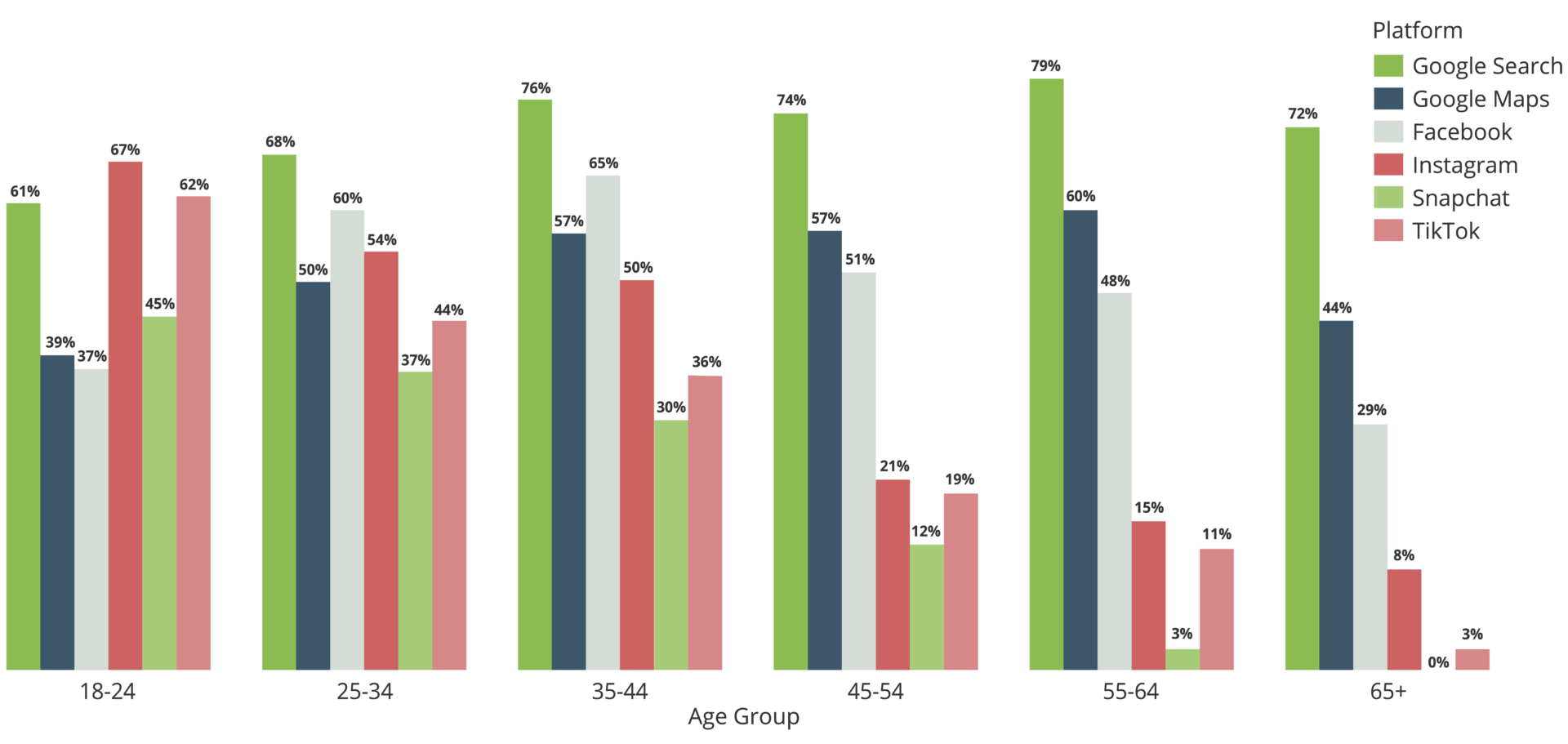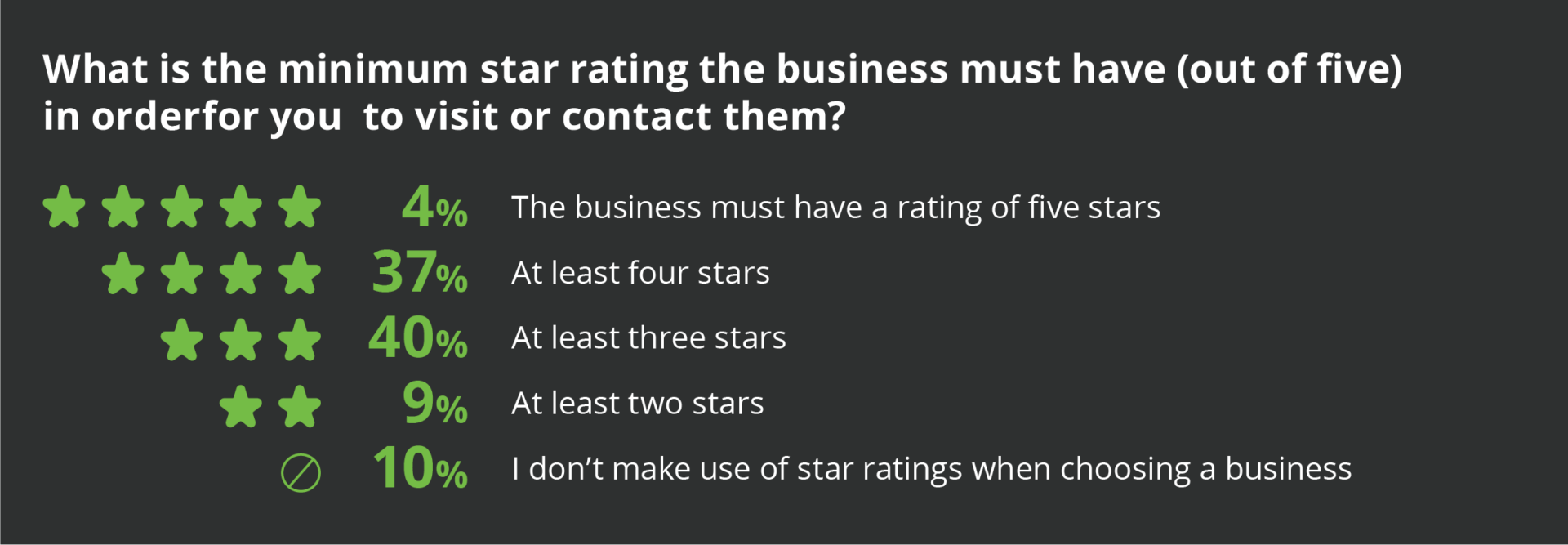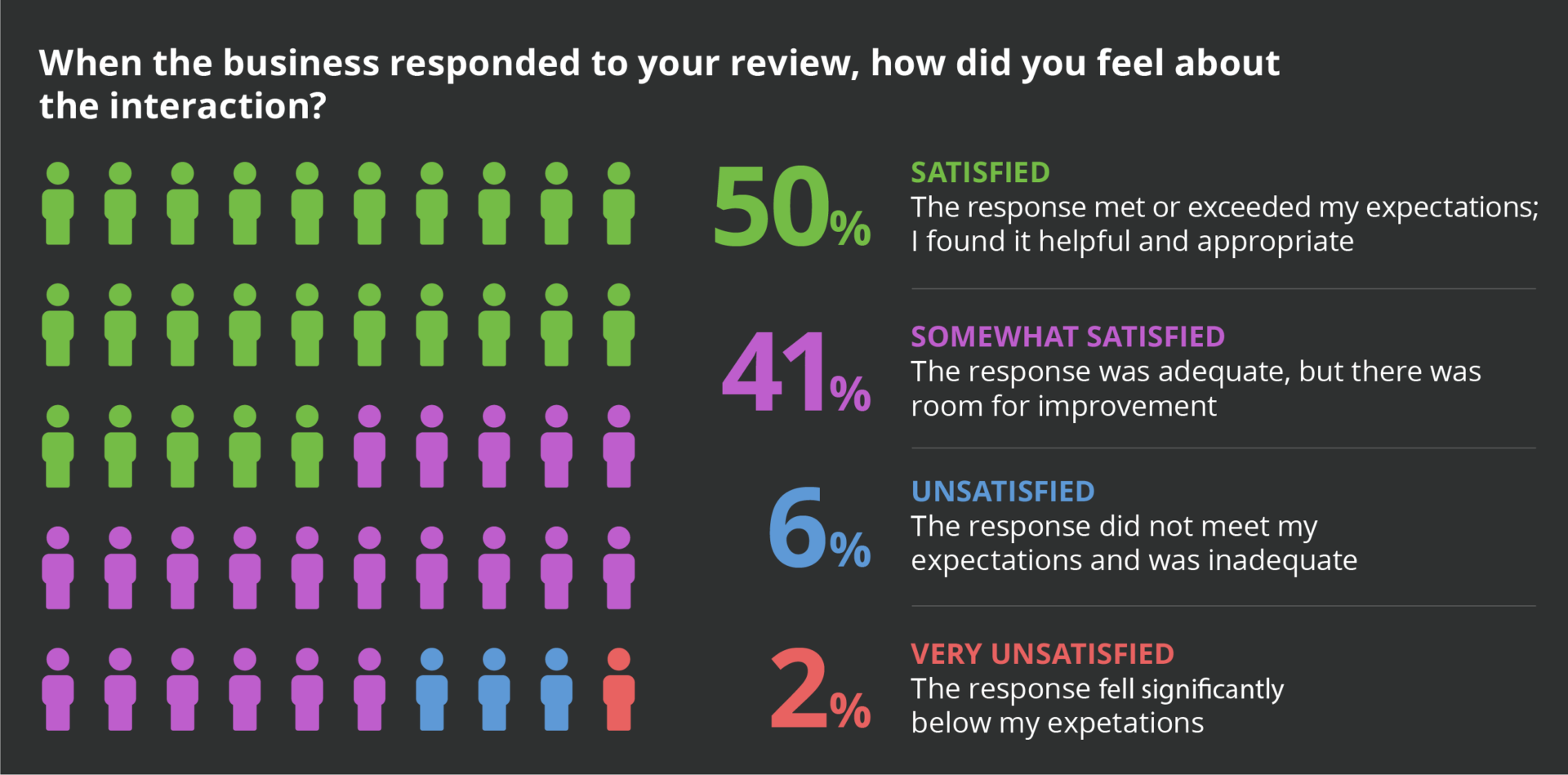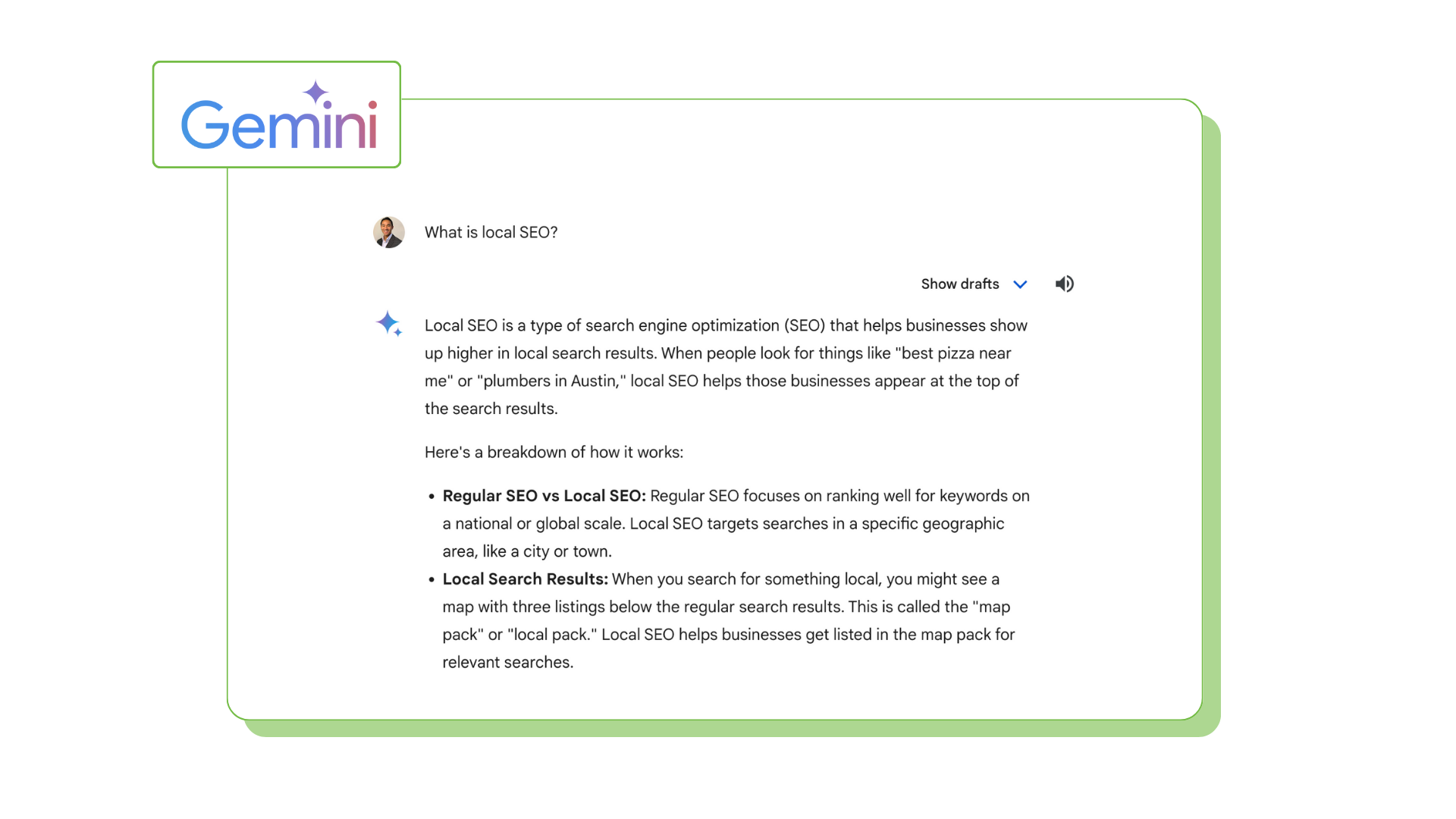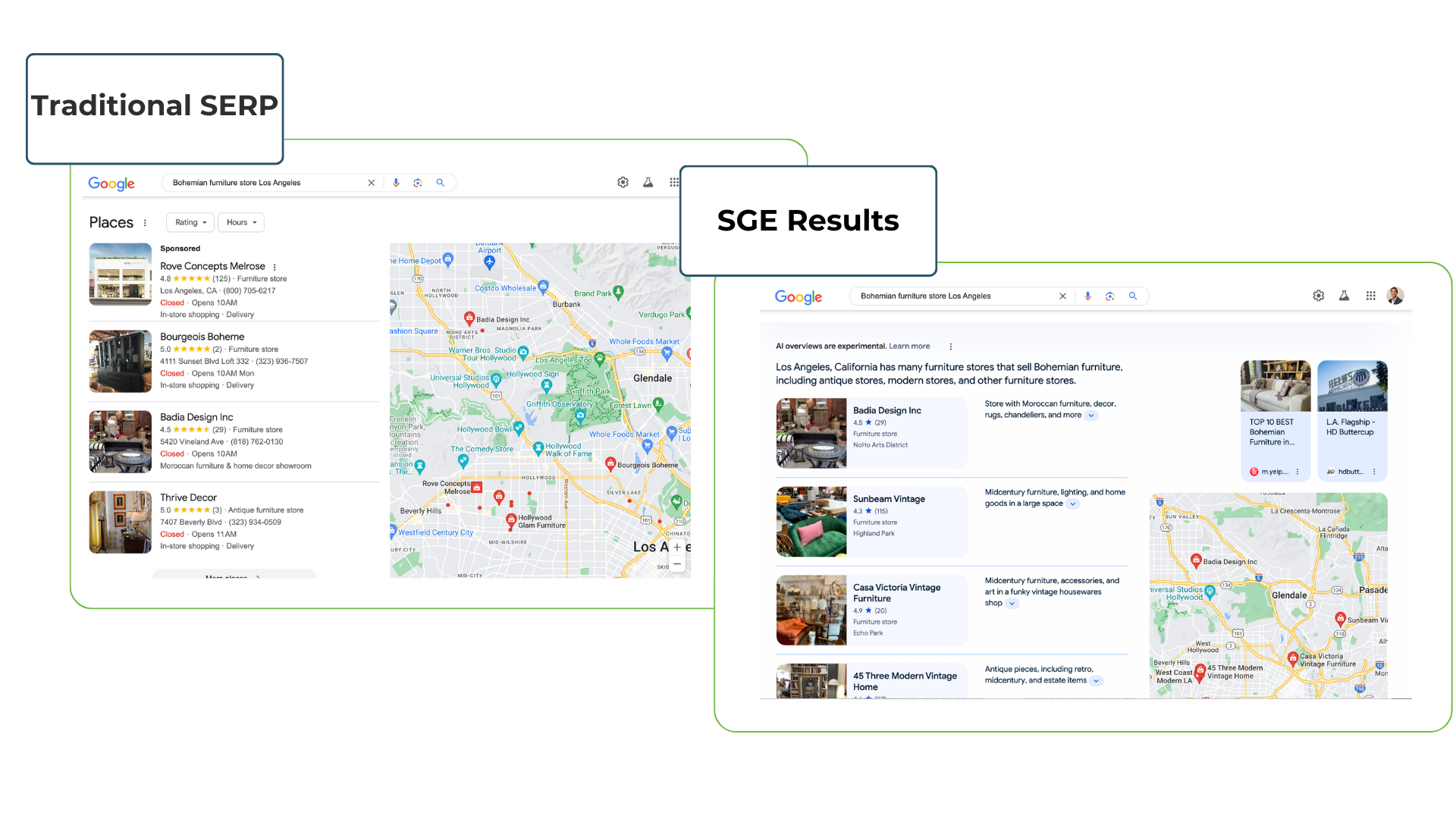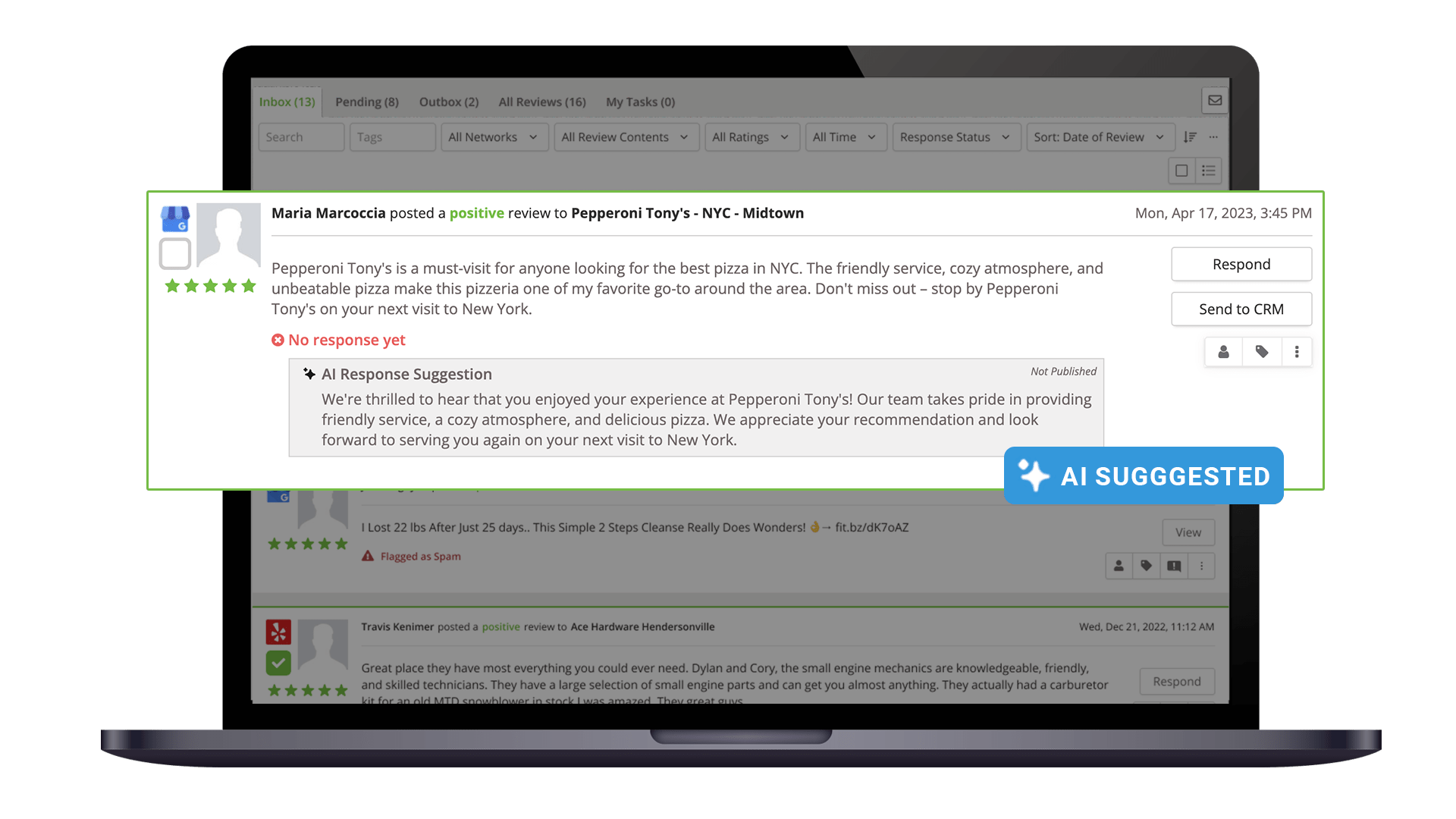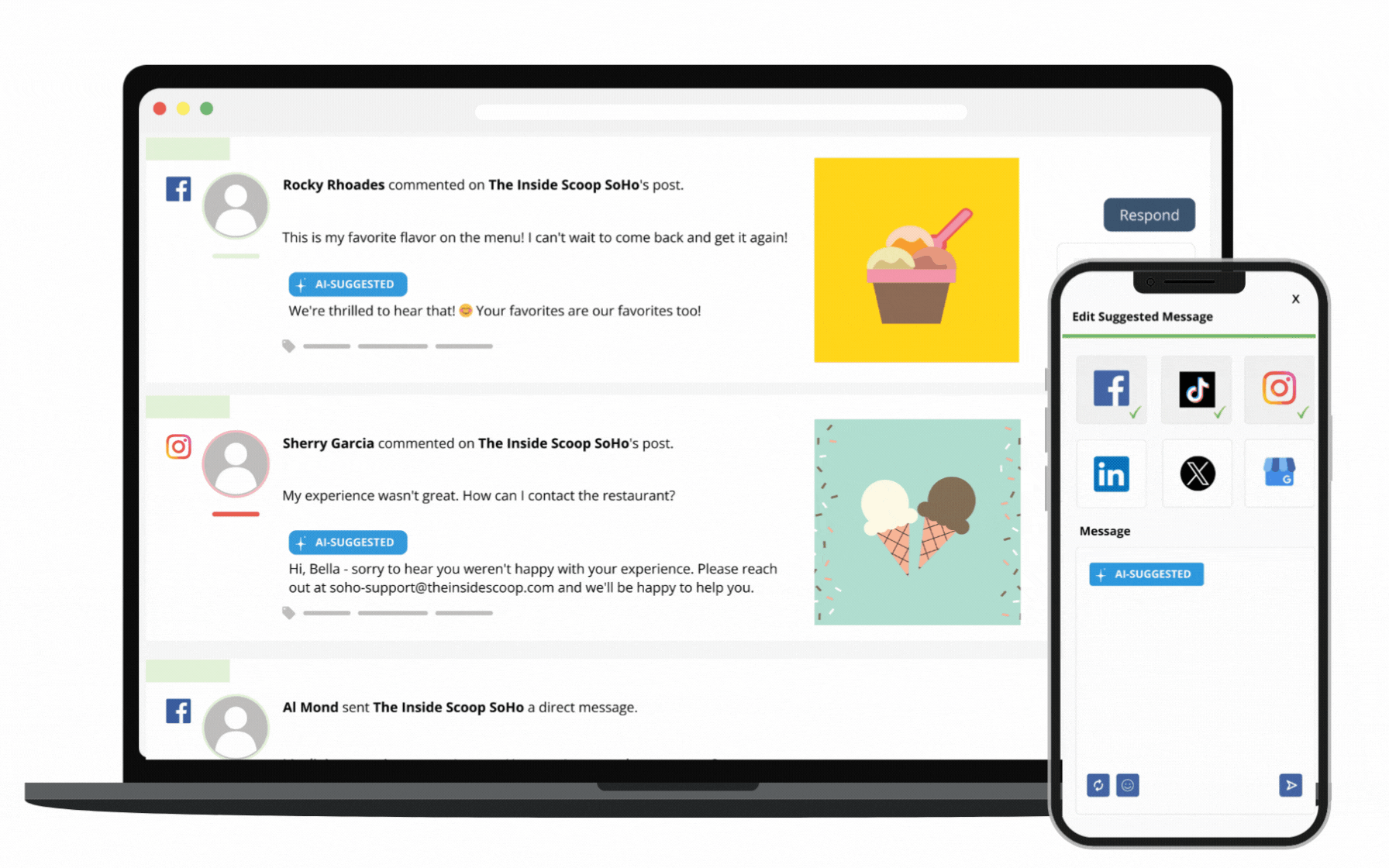Where You’re Missing Local Engagements and How AI Can Help
Table of Contents
The majority of consumers are searching for local businesses online. Our recent Consumer Behavior Index (CBI) research found that 80% of consumers search for local businesses online at least once a week and 32% search daily.
It’s important to note that consumers’ local search behaviors vary considerably by age. However, one consistent factor is that consumers want and expect engagements from local businesses.
These engagements can take the form of a review response, reply to a social media comment, and more. Consumers want to feel acknowledged and seen by the businesses they interact with.
Keeping up with engagements for each business location on multiple search and social media platforms is particularly challenging for multi-location businesses. Artificial intelligence (AI) offers a nuanced solution to this issue!
In this article, we’ll explain:
- How different age groups search locally
- What consumers expect from local businesses
- The transition to local generative AI results
- How AI can help with local engagements
How Do People Search for Local Businesses?
Before diving into where brands are missing local engagements, it’s important to understand where they’re happening.
As noted earlier, consumers’ local search behavior varies by demographics. Our CBI data revealed that 67% of those 18-24 said they use Instagram most frequently to look for local businesses, with TikTok coming in second at 62% and Google Search in third at 61%.
For those outside of the adult Gen Z age range, Google Search remains the dominant choice, with usage of social apps declining dramatically for consumers older than 44.
Undoubtedly, for local businesses, having a presence on local listings such as Google Business Profiles (GBPs) and Yelp Business Listings is crucial. However, it’s not just these listings that are important; social media platforms also play a significant role.
What Matters to Consumers?
Evidently, consumers rely on social media and local directories for local searches, but what matters most to them? What makes users choose one local business over another? Below are the three leading indicators:
1. Ratings and Reviews
Consumers consider your local businesses’ star ratings and reviews immensely. Our CBI research found that:
- Eighty-seven percent of consumers read online reviews regularly before making a purchase decision.
- Nearly 8 in 10 people believe a business must have at least three out of five stars to be considered.
Our previous research from The State of Google Reviews supports this correlation between star ratings and conversions. We found that GBP conversions improve by 44% when a business increases its average star rating by one full star.
2. Responses from Businesses
Providing timely and meaningful feedback impresses current and potential customers. Our CBI results revealed that over 8 in 10 people have written a review of a local business, and 41% said they’re more likely to choose a company that responds to its online reviews.
However, businesses are failing to respond to their customers satisfactorily. For instance, only half of our surveyed consumers felt a business’s response met or exceeded their expectations. Moreover, according to respondents, only 31% of companies responded within 1-2 days.
Your business must prioritize excellent customer experiences (CXs) to gain consistent positive reviews. Responding quickly and appropriately is crucial once you receive a review. To achieve this, you need a clear response protocol that addresses the issue, reinforces feedback, and fosters brand loyalty.
Download our guide to online reputation management for more review response tactics!
3. Engagement on Social Media
Today, consumers treat social media as a communication tool with businesses. Some 82% of consumers we surveyed say they sometimes post comments and questions on online profiles. However, similar to online reviews, less than half (48%) were satisfied with the business’s response. In fact, 27% never received a response from the business.
Businesses must respond to and engage with their followers on all local social platforms. Simply having the correct name NAP citations (name, address, and phone number) on your social platforms won’t cut it anymore.
The Transition to Local Generative AI Results
We’d be remiss in discussing local search trends without touching on AI’s impact on general and local search.
OpenAI’s ChatGPT, Google’s Gemini and Search Generative Experience (SGE), and Microsoft Bing’s Copilot are AI chatbots powered by large language models (LLMs).
These leading tech giants are transforming the online search landscape by delivering concise, informative summaries. Instead of traditional search engine results pages (SERPs), these AI chatbots produce generative AI results (GAIRs).
At the local level, local GAIRs are relatively similar to Google’s local finder and Places results, but with the addition of concise, informative summaries. Below is a comparison between Google’s AI-powered search generative experience (SGE) and traditional local search results.
As you can see, the results vary. While traditional search results are still relevant, paying attention to how your brand appears in GAIRs is important to ensure you’re not missing out on local engagements.
Note that this type of GenAI in Google Maps is relatively new. Although these LLMs and AI chatbots are still being developed and will likely improve, these current local GAIRs have their shortcomings.
How Local GAIRs Can Highlight Shortcomings
As Google and Microsoft integrate their LLMs and AI chatbots further into their search engines, your SEO specialists, marketing team, and company must be prepared to adapt to them. To start, read our article on generative engine optimization (GEO).
Once you have an understanding of what GEO is and how it works, it’s time to start testing. At the local level, treat these GAIRs like SERPs. You’ll want to try non-branded and branded search queries to see if your local listings appear in these GAIRs and how they appear in traditional SERPs.
Additionally, try longer-tail search queries since many users search this way on AI chatbots. For instance, if you’re a smoothie company, you might ask, “Are there any smoothies with vegan options near me?” and see if you appear in these local GAIRs.
You’ll need to test this across different locations and multiple AI-driven platforms, such as:
- Google’s Gemini and SGE
- Microsoft’s Copilot
- Meta.ai
- OpenAI’s ChatGPT
- Perplexity.ai
How AI Can Help With Local Engagement
Right now, it’s a bit early to tell if you can manipulate local GAIRs. However, Google and Microsoft didn’t erase years of technology and search engine algorithms overnight. Instead, they used LLMs and AI to analyze and improve these search engines, and now their chatbots.
These AI chatbots and search engines prioritize responses based on relevance and credibility. For instance, one academic study found that including citations, quotes, and statistics improved rankings in GAIRs.
These tech companies aren’t the only ones who can rely on LLMs and GenAI. You can, too! Below are four ways to use GenAI to help appear in GAIRs and increase local engagements across search and social platforms.
1. Include Must-Know Details on All Local Profiles
According to a 2023 survey, 88% of Gen Z and 77% of millennials believe AI will improve online shopping, and 54% of both generations are interested in AI shopping assistants.
These generations believe that AI can help with:
- Price comparisons (50%)
- Finding deals (46%)
- Relevant offerings/products (41%)
- Personalized assistance (35%)
- Reviews (29%)
Regardless of whether your company has an AI-powered chatbot on its website to help with product information, you must ensure that your local online profiles, website, and product information are up-to-date and accurate. This will help your brand be more visible to consumers, increasing the likelihood for more engagement on your local search and social platforms.
Misleading or inaccurate information could pose problems in the SERP and on GAIRs, leading to hallucinations, a poor CX, and abandoned shopping carts.
2. Hyper-targeted keyword research
Again, people use long-tail queries and precise searches when interacting with AI chatbots.
For instance, two fitness enthusiasts will search differently based on their preferences. One might search for “Saturday morning boot camp fitness class,” while the other will search for “Tuesday evening hot yoga class.”
To appear in these GAIRs, a franchise fitness center should create location-specific landing pages optimized for these types of search queries. They must include details about relevant classes offered at that particular location. They can also upload crawlable weekly class schedules to ensure Google and other search engines index them.
After installing similar updates that speak to your target audience, check if you appear in GAIRs. They should increase your rankings for said queries, which improves engagement.
3. Created Localized and Personal Content
Utilizing AI to craft localized and personalized content can significantly enhance your brand’s connection with its audience. Businesses can use AI-generated content in blog posts, social media posts, and email newsletters to better engage with their target audience.
For instance, a bakery chain can leverage AI writing tools like Jasper or ChatGPT to produce content around seasonal favorites. Furthermore, they can highlight local farmers and suppliers they work with in their content. This content adds authenticity and supports the community by showcasing local produce and crafts, which enhances brand loyalty.
4. Respond to Reviews and Engagements
As mentioned earlier, consumers greatly value online reviews and businesses’ responses to reviews and social media comments. GenAI can draft on-brand and personalized responses.
If prompted well, it can meticulously reference specific details from consumers’ feedback, includes empathetic language, and offers constructive solutions, ensuring a tailored communication approach.
Using GenAI to draft responses boosts customer service quality and shows a brand’s dedication to personalized communication. This strategy resolves customer issues and builds lasting loyalty and trust.
How SOCi’s CoMarketing Cloud Can Help
SOCi’s CoMarketing Cloud, enhanced by our AI automation layer SOCi Genius, offers multi-location businesses a sophisticated solution to scale their local engagements. By leveraging AI, SOCi Genius automates content creation, optimizes posting schedules across various locations, and personalizes interactions with local audiences.
For instance, Genius Reviews allows you to generate on-brand and personalized responses to local reviews across all major local directories. These AI-generated review responses improve your online reputation and local search rankings on traditional SERPs and GAIRs.
Similarly, Genius Social allows you to create on-brand and location-specific content that resonates with local audiences and boosts brand loyalty. Additionally, Genius Social can help you engage with and respond to your local social pages’ many engagements.
Lastly, we’ll soon have another Genius update to help you better address and manage local search activities.
Through these AI-driven capabilities, SOCi empowers businesses to strengthen their local presence and foster deeper connections with their audience at scale.
Request a demo to learn more about our “Genius” capabilities!
